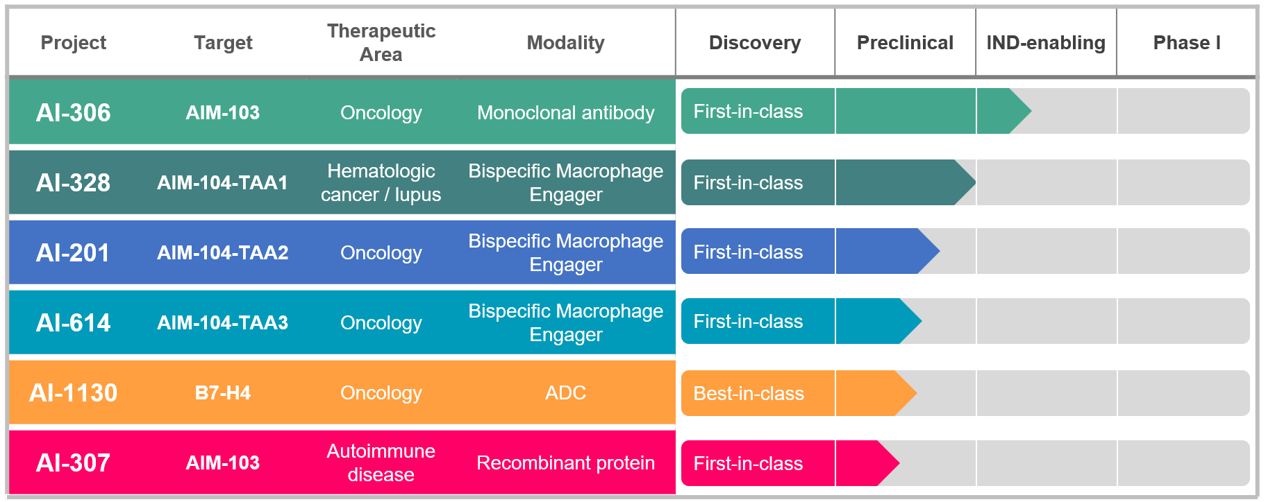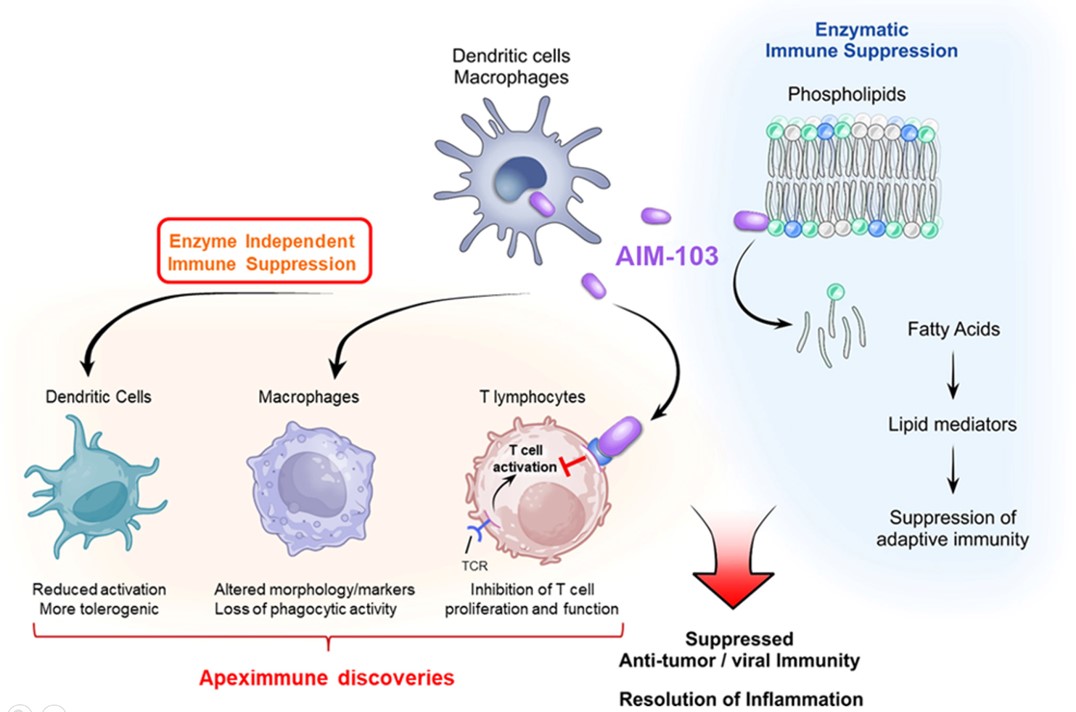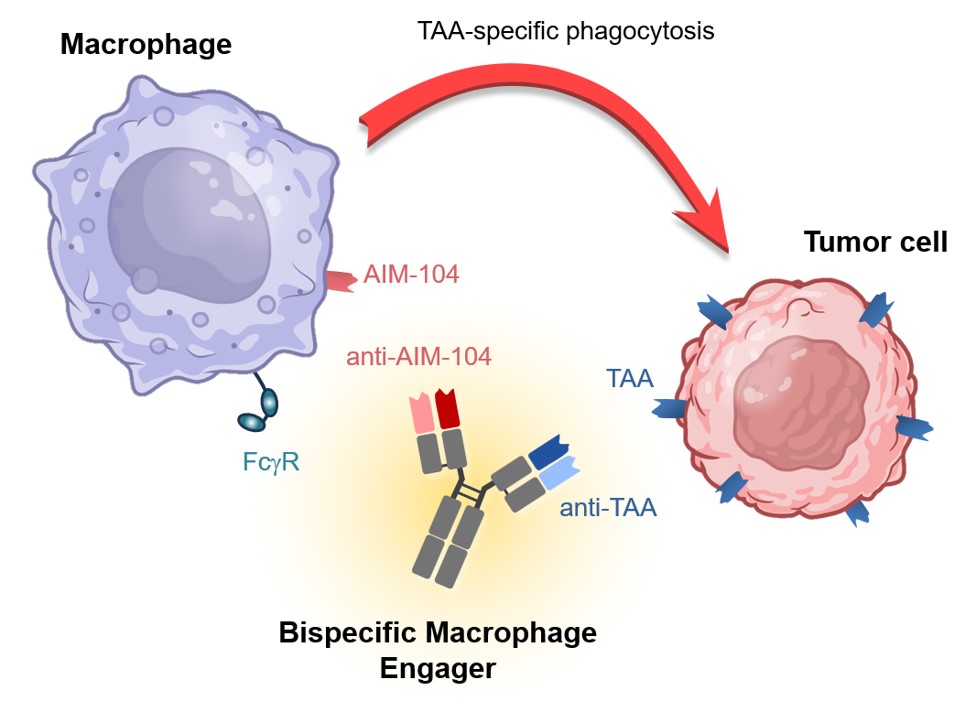AIM-103 is novel negative immune checkpoint target with highly elevated expression in numerous cancers, especially those enriched with a high T cell signature. Apeximmune is developing AI-306, an antagonist monoclonal antibody against AIM-103 designed to reverse its immune suppressive functions and thereby reinvigorate anti-tumor T cell immunity.
Primarily expressed by dendritic cells and macrophages, AIM-103 is a member of the secreted phospholipase A2 family whose enzymatic activity specifically shifts the microenvironmental lipid metabolite balance towards a pro-resolving state by suppressing pro-inflammatory cytokines and dampening DC activation. Pioneering research at Apeximmune has further uncovered novel immune suppressive mechanisms of AIM-103 that are completely independent of its catalytic activity. These newly discovered enzyme-independent functions include inhibition of T cell proliferation and IL-2 expression through direct T cell binding, suppression of macrophage differentiation and phagocytic activity, and perturbation of DC maturation and activation.
AI-306 is a first-in-class antibody designed to bind AIM-103 with high affinity and inhibit both its enzyme dependent and independent immune suppressive functions, thus leading to enhanced anti-tumor immunity. AI-306 is expected to be highly complementary to anti-PD-1 therapies, as AIM-103 expression has been observed to be upregulated in patients following anti-PD-1 treatment, particularly in PD-1 refractory patients.




